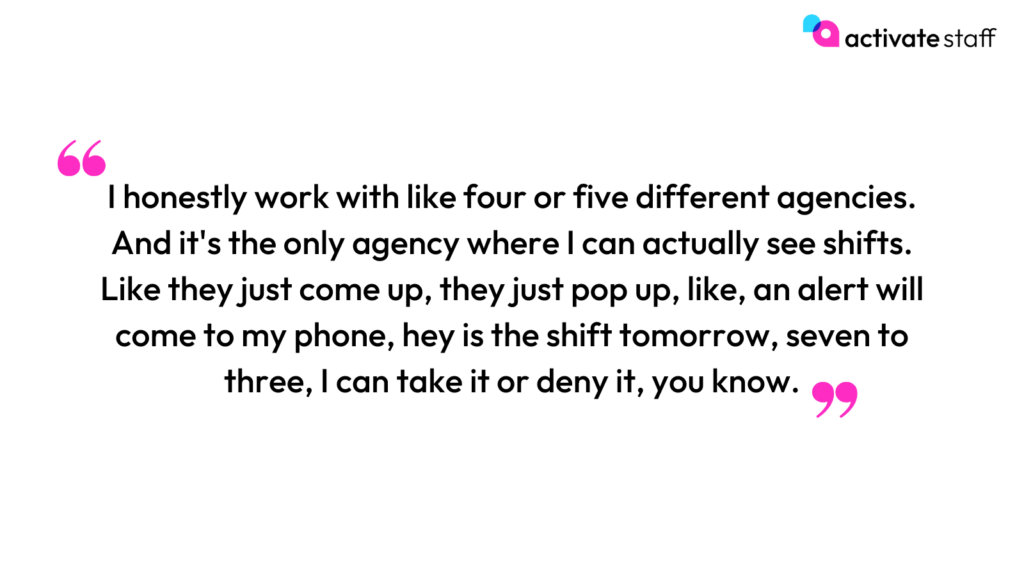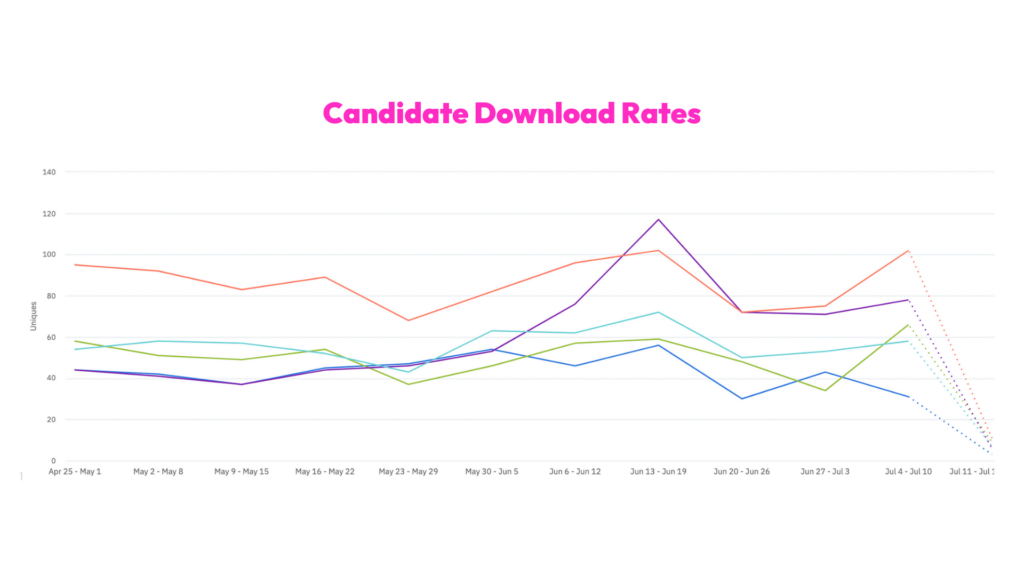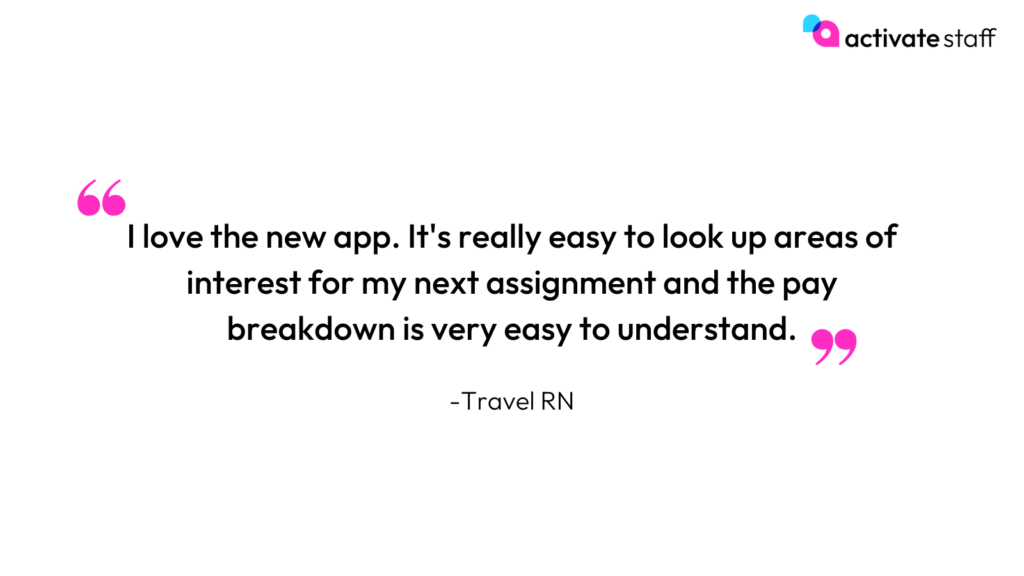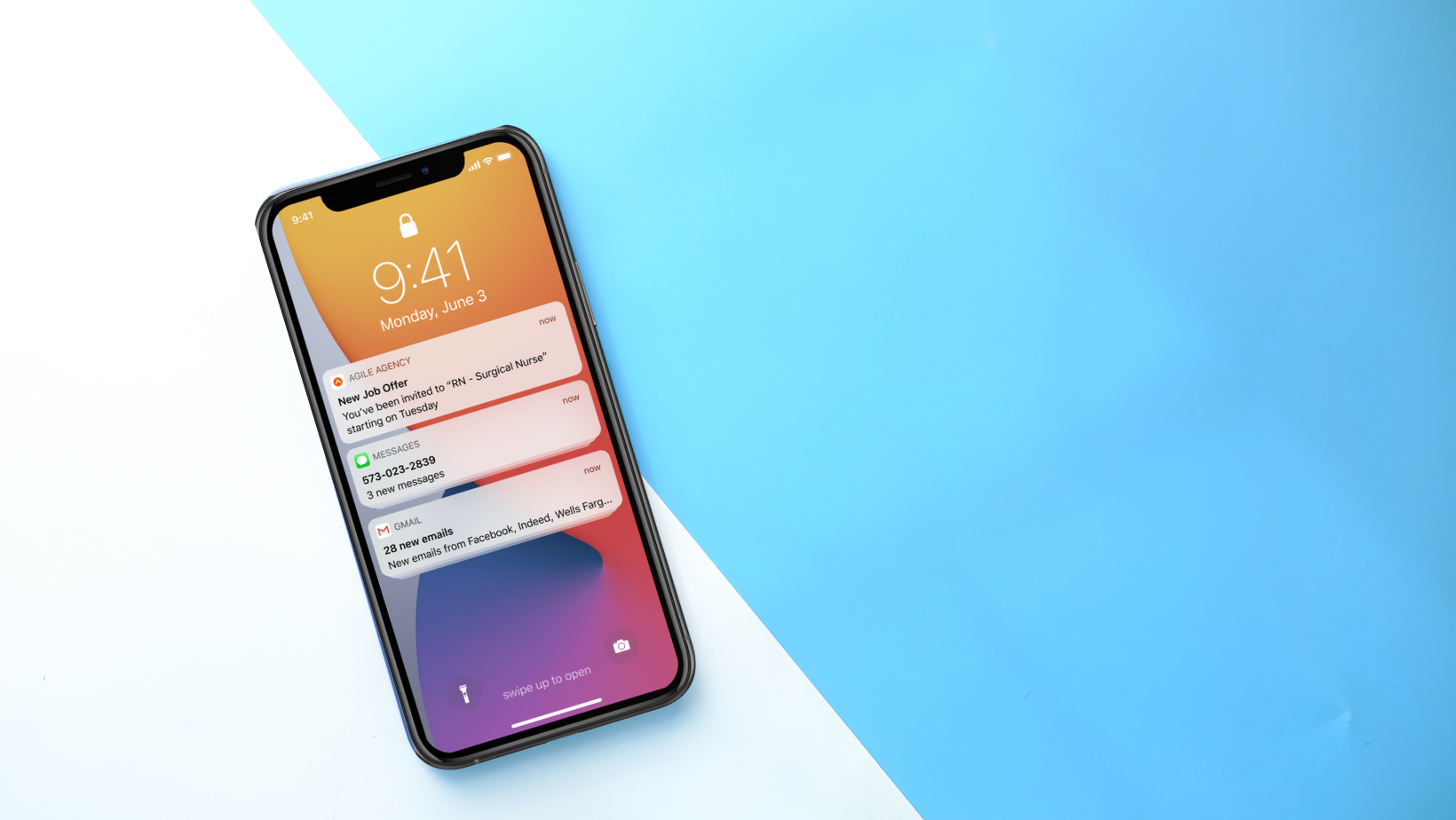Mobile staffing platforms are popping up everywhere in the staffing industry and firms are rushing to find solutions to not fall behind the curve. As you think about how your firm might deploy a staffing platform, one of the most important things to consider is whether a native mobile app, progressive web app (PWA), or mobile optimized website better suits your agency’s needs.
Native Mobile App Benefits
1. Real-time notifications
Real-time notifications, also known as push notifications, are the most efficient and valuable way to be alerted of updates or reminders and are only available with native mobile apps. They are the pop-ups that appear on your smartphone to notify you of any messages and allow you to view and immediately respond to any urgent inquiries easily.
Not only are real-time notifications incredibly beneficial for your recruiters, but they can also be advantageous for your candidates. They would be notified of new job alerts or requests, direct or group messages, and reminders of upcoming jobs. This means more transparency and ease of communication between the agency and talent.

You can use your real-time notification data to create a “warmest leads” approach. If you focus your outreach efforts on candidates that you know are active in the app you’re more likely to get engagement.
Activate clients have found this approach helps save their recruiters hours each day.
2. More control
This benefit is a little more technical, but it’s crucial to know what framework is used to develop your platform. This will determine how much control and efficiency you will have in updating your app. At ActivateStaff, we use a software framework called React Native. It lets us write a single code for updates on both Android and iOS, rather than having to write two different versions. It even allows us to create a PWA from the native app, something that is more difficult to do in reverse. Our developers have more control over updates, bug fixes, and productivity, getting more done in less time without compromising any benefits.

3. Better Analytics
Native staffing apps can provide better analytics on user data such as candidate onboarding, impression completion, and sign-up time. This information can help your agency better understand their candidates’ behaviors and allow you to adapt. With PWAs of mobile optimized sites, this data will likely include bots that have visited any pages. Since native apps require a download to be accessed, the analytics are more reliable. This is a great way to accurately understand and evaluate your key performance metrics (KPIs).

4. Geofencing & other device features
One of the primary benefits of having a mobile staffing app is that it allows recruiters to hire on-site talent remotely. The hired candidate can check in and out of their shifts directly through an app. Native apps have better access to the built-in features of the mobile device, such as geofencing or biometrics. Geofencing through a native app allows recruiters to more accurately determine if the candidate has shown up to their shift at the right time and location and also uses less battery power compared to a PWA.
5. User preference
Statistically, mobile users spend 90% of their time using apps on their devices and the other 10% of their time on the general internet. They prefer to use apps over mobile websites because of many benefits mentioned in this list. Things such as user experience, the speed at which they can access the app, and push notifications that can notify them immediately of any deals or messages that have come through.
Many native staffing apps automatically save the users’ preferences so they don’t need to be reset later. In the ActivateStaff app, for example, when a worker specifically wants to look for a job based on specific criteria (such as jobs with no certification required), those preferences are saved for the next time.

6. Lead generation
Native apps give potential new pools of talent another way to find your firm by being listed and downloaded directly from the Apple App Store or Google Playstore (something that is not possible with a mobile optimized site) Any increase in brand visibility leads to more conversions. The more platforms you’re visible on, the better for lead generation.
With the right target marketing and app store optimization (ASO) strategy for increasing the visibility of your app on the app store, this is an opportunity to engage with candidates. We’ve had agencies 7x their app download projections simply from candidates finding their app organically in the app store.
7. Faster performance
Mobile apps run faster than web apps. This is because all the data, such as images or files, is downloaded and stored on your device. Rather than retrieving them each time as you would with a website, the native app stores all the files on the device. This makes it faster to pull up the data and diminishes the load times. And because these apps are specifically built for mobile, they use less battery because they’re not relying on the user’s device to interpret the PWA’s code.
8. Better user interface (UI)
As mentioned previously, a mobile-optimized website adjusts what you would see on a regular desktop site to fit the size of the screen of your device. This means that it does not guarantee that the user will experience the functionality and usability they would typically expect. A native app, on the other hand, is built specifically for mobile devices. The time is spent researching and developing the optimal interface environments that are intuitive to the user and specific to the type of device they are accustomed to.
9. Auto-update
A mobile-friendly web app is still a website. It needs to be accessed through browsers such as Safari or Chrome on the mobile device and the user needs to log in each time or remember to ensure they’re looking at the most recent page with the latest information. Native apps are capable of background app refresh, which means that it always shows you the latest information without having to click refresh or have you later realize your candidates are browsing an older website with job postings that are no longer listed.
10. Security
Getting an app listed on an app store is difficult. The approval process is very detailed and subjects the app’s security to be evaluated against a standard for quality control. This guarantees that users don’t need to be worried about the security of the app as it’s already been thoroughly audited. PWAs do not have a defined standard, which can be a cause of concern for many users.
11. Containing the experience
While PWAs are a hybrid between a regular website and a mobile app, they are still just a website when opened. This means it’s just as easy to navigate away to another site as any other website you visit. On the other hand, native apps contain the user’s experience to the platform, keeping them from getting directed away from the app and from your brand.
A native mobile app has many great features and added benefits that a PWA can’t provide. They’re not for everyone – especially if you’re planning to build it yourself. But the many reasons above are why popular messaging platforms like Facebook Messenger, WhatsApp, Signal, and others use native apps over PWAs. It’s important to take into account your goals for your agency and explore the ideal type of experience you want to deliver to your recruiters, candidates, and clients.
If you’re interested in learning more about what a staffing app can do for your agency, book a meeting with one of our experts or download our e-book on staffing apps.


